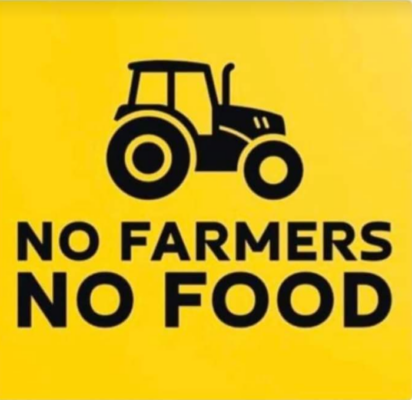When animal products are no longer made by animals, what do we call them?
When people invent new products it would be helpful if they renamed them.
There are plant-based “milks” – coconut milk, almond milk, oat milk, cashew milk, soy milk, etc. are helpful to those with allergies to cow’s milk.
They are not actually real cows milk or any mammal milk, they are plant based and advertised as such. These products are useful to those who are allergic to cows’ milk, but some are sensitive to plant-based concoctions as well. Now we have a new player “Remilk”!
Not from cows or plants but Genetically Modified Organisms (GMO) by way of “microbial fermentation” and yeast.
Consumers deserve the truth about where our food comes from! Remilk calls it “real milk,” but is it? The new buzzword for the greenies is “animal-free” and “cruelty-free,” and the Precision Fermentation Alliance (PFA) is going to make intelligent purchasing more difficult. For example, a label may say a product is “animal free” but may have animal-based fats incorporated into the mix. Therefore, one may think they are buying vegan milk but in the creation, animal fats are used.
We want to thank Julie P. for this Contribution – Please direct yours to Steve@GraniteGrok.com.
You can review our ‘Op-Ed Guidelines‘ on the FAQ Page.
The PFA is collaborating with the GFI (Good Food Institute), a nonprofit advocating for ethical and sustainable alternatives to industrialized animal agriculture on precision fermentation nomenclature, research that GFI is conducting. If the content of what you’re consuming is important to you, you may want to look deeper into how and what created it.
Remilk is not plant or mammal based. Remilk is an Israeli food company using microbial fermentation. They claim that the products are indistinguishable from “old-fashioned” dairy, “sporting the same taste, texture, and yumminess! And all that heavenly goodness is minus the lactose, cholesterol, hormones, and antibiotics.” They always add “antibiotics” as a scare tactic. When a dairy cow is treated with antibiotics, the milk is flushed/dumped. The hormones in cows’ milk are considered safe by the FDA and WHO. Yet, what health benefits does Remilk have that real dairy doesn’t?
Lab grown milk has the approval of the US, Canadian and other governments. Milk protein that doesn’t use any animals in its production is pitched as an eco-friendly alternative to milk, cheese, yogurt, and ice cream called “Remilk.” They copied the “gene” responsible for milk and added water and yeast, and they made what they call a milk replacement or milk.
Doesn’t stop at milk. General Mills is using similar technology to produce animal-free cheese. Startup company New Culture makes mozzarella with dairy proteins made by microbes.
During the ’90s, GMOs got a bad rap from consumers, and manufacturers have worked hard to normalize the practice in foods. The younger GenZ and millennials are more perceptive to using technology that is pitched to save the planet. But does it? Dairy and meat cows give us many byproducts besides food, such as; anti-aging creams, cosmetics, medicines, fertilizer, adhesives, textiles, leather, plastics, paint, lubricants, rubber, and much much more! They also provide us with beautiful green fields and byproducts that are part of the circle of life.
The lies spun by the globalists about livestock are absurd.
We should always demand transparency from our government with regard to our foods, yet much is being done to keep us in the dark under the use of GMO, bioengineered generic terms, saving the planet, eliminating livestock, and rewilding farms. How do we know it’s safe?
I’m not promoting this product as good or bad. I wouldn’t know I’m not a geneticist, and I was unable to find details on human testing. Besides, I’m perfectly satisfied with real milk and dairy products from cows and goats for many reasons. Knowing about Remilk is just one more reason we shouldn’t be coerced into GMO foods because we have to eat.
If you are concerned about where your food comes from, become informed and do your own research …Buy local, help save a farm.
